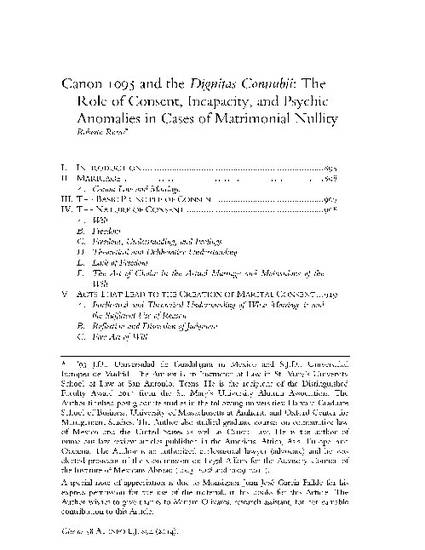
- Family Law,
- Law and
- Religion Law
This Article will focus on the following points: (1) the essential elements of marriage; (2) the basic principle of matrimonial consent; (3) the nature of consent; (4) acts through which consent is formed; (5) matrimonial nullity in Canon Law; (6) Canon Law and the Dignitas Connubil (Dignitas); and (7) recent jurisprudence concerning matrimonial nullity. It aims to shed light and clarify paragraphs 2 and 3 of Canon 1095 of the Code by making clear how the causes of defect of discretion of judgment and the inability to assume the essential obligations due to some sort of psychic disorder or anomaly affect either an affirmative or negative declaration of matrimonial nullity. Additionally, it discusses the role of the Dignitas as a tool intended to help judges and other tribunal ministers of the Church who are entrusted with hearing the causes of nullity of marriage. Its provisions support the juridical structure of the marriage nullity process and encourage adherence to that same structure. The purpose of the Dignitas is to clarify the provisions of the universal law and detail the way in which they are to be observed." Essentially, the law is contained in the Code while the Dignitas serves as a guide for the implementation of that law.
